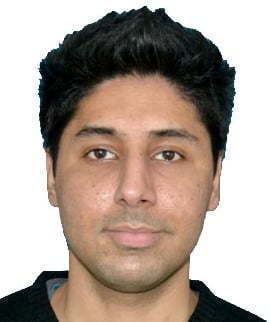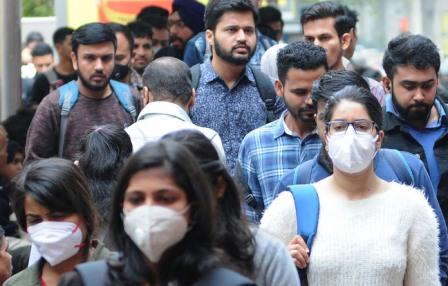

On July 6th, University Grants Commission (UGC) issued its ‘Revised Guidelines on Examinations and Academic Calendar for the Universities in view of COVID-19 Pandemic’. Since then, a series on exchanging tweets and letters involving politicians and academicians has started.
States which had already announced the cancellation of exams like Maharashtra, Punjab have opposed these guidelines citing their inability to hold exams in this time of pandemic. Even the former UGC chairman and some academicians have reacted to the guidelines as being unfortunate and unbecoming.
UGC and Expert Committee on Examinations mandates
 UGC, which is a statutory body, has only advisory powers. Its mandate involves advising the central and state governments on improving university education and acting as a link between the central and the state governments. The Commission does not have the power to enforce its decisions on the governments, as it could only advise them. So, making its rules for conducting exams mandatory is not proper on the part of UGC.
UGC, which is a statutory body, has only advisory powers. Its mandate involves advising the central and state governments on improving university education and acting as a link between the central and the state governments. The Commission does not have the power to enforce its decisions on the governments, as it could only advise them. So, making its rules for conducting exams mandatory is not proper on the part of UGC.
The Union Human Resource Development (HRD) Minister’s tweet regarding advising UGC to revisit the guidelines stated that ‘The foundation for revisited guidelines shall be health and safety [of] students, teachers and staff’. The UGC constituted an Expert Committee to perform this task of revision, but unfortunately, the committee seems to have taken only a narrow view on the issue.
The revised guidelines appear to hardly consider the aspect of health and safety of students and faculty, and seem to emphasize only on establishing academic credibility of students, but that too in a highly disorganized manner, as students have not seen the classrooms in over three months now and their term curriculum has also been badly disturbed.
Also Read: Amarinder seeks cancellation of final term Uni/College exams
The state governments, who are very important stakeholders in this affair, as they will have to administer the mobilization of lakhs of students from their homes to universities and colleges and to make any other provisions for them, have not been consulted on this issue. Hence, a tussle has ensued between the two on conducting or scrapping the exams in the wake of a rising number of Covid-19 positive cases.
Citing top-ranking global institutes
UGC, while justifying the revised guidelines has opted to cite some top-ranking global institutes like MIT, Cambridge, Princeton, Oxford, etc. But is it right to mention these institutes? These top-ranking universities have regularly conducted all their classes as planned. They took all their departments including classrooms online, ensuring least impact on the students and their studies.
These global universities possess the required resources and the infrastructure for such an enterprise. And they even made provisions for monetary support to students to rent/buy a laptop if one does not possess to attend the online classes and to submit assignments. These universities have conducted online examinations or otherwise they have employed some other innovative methods to evaluate the students as claimed by UGC itself.
 On the other hand, the universities in India, especially the state universities in remote areas, have been inefficient even in ensuring 24/7 high-speed internet facilities for the faculty members. They have not been able to take any regular online classes due to the lack of required infrastructure.
On the other hand, the universities in India, especially the state universities in remote areas, have been inefficient even in ensuring 24/7 high-speed internet facilities for the faculty members. They have not been able to take any regular online classes due to the lack of required infrastructure.
For the Indian universities, including the top NIRF-ranking institutions, conducting examinations online is not feasible; both because they lack enough resources and the students residing in rural areas lack continuous access to high-speed internet.
So, for UGC mentioning the top global institutes to justify its move sounds like comparing apples and oranges. Though, the Commission might have only invoked these global institutes to prove the point on importance of examinations for terminal semester students, but it is pertinent to mention that these institutes did not have to stretch their academic calendars beyond the planned term dates and they are precisely on their way to grant degrees to the terminal semester students.
What could have been done?
The constituted Expert Committee could have been asked to suggest some innovative and pragmatic ways to conduct examinations and to not simply postpone and propel the cycle of uncertainty as students also have to make further career moves, prepare for other entrance examinations for some course or for entering the job market. The committee seems to have taken an idealistic view by looking at what other global universities are doing and issued the guidelines without considering the ground realities of the country.
 The HRD Ministry, which has sufficient powers, could have consulted the state governments on the matter and have come to a better understanding as a few states had already cancelled the examinations, and at least these states could have been approached. They might have taken a more realistic view of the situation and could have avoided what we are witnessing every day now, exchanging letters between the central and the state ministers, and increasing the precariousness among students further.
The HRD Ministry, which has sufficient powers, could have consulted the state governments on the matter and have come to a better understanding as a few states had already cancelled the examinations, and at least these states could have been approached. They might have taken a more realistic view of the situation and could have avoided what we are witnessing every day now, exchanging letters between the central and the state ministers, and increasing the precariousness among students further.
Sadly, this is another example of poor administration and mismanagement in which different power centres have issued orders on the same subject but pointing in opposite directions.

Disclaimer : PunjabTodayTV.com and other platforms of the Punjab Today group strive to include views and opinions from across the entire spectrum, but by no means do we agree with everything we publish. Our efforts and editorial choices consistently underscore our authors’ right to the freedom of speech. However, it should be clear to all readers that individual authors are responsible for the information, ideas or opinions in their articles, and very often, these do not reflect the views of PunjabTodayTV.com or other platforms of the group. Punjab Today does not assume any responsibility or liability for the views of authors whose work appears here.
Punjab Today believes in serious, engaging, narrative journalism at a time when mainstream media houses seem to have given up on long-form writing and news television has blurred or altogether erased the lines between news and slapstick entertainment. We at Punjab Today believe that readers such as yourself appreciate cerebral journalism, and would like you to hold us against the best international industry standards. Brickbats are welcome even more than bouquets, though an occasional pat on the back is always encouraging. Good journalism can be a lifeline in these uncertain times worldwide. You can support us in myriad ways. To begin with, by spreading word about us and forwarding this reportage. Stay engaged.
— Team PT


Copyright © Punjab Today TV : All right Reserve 2016 - 2024 |